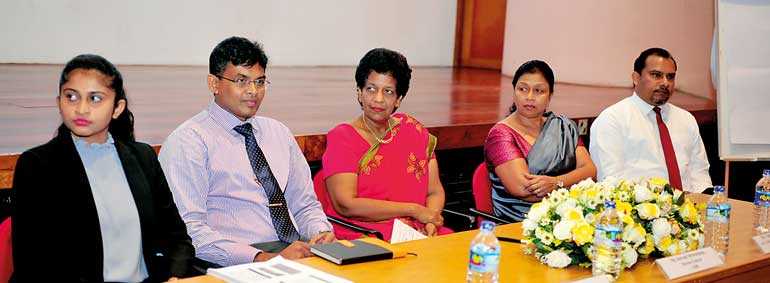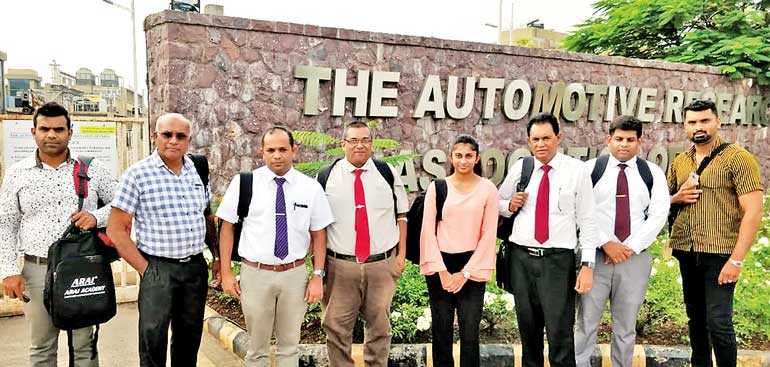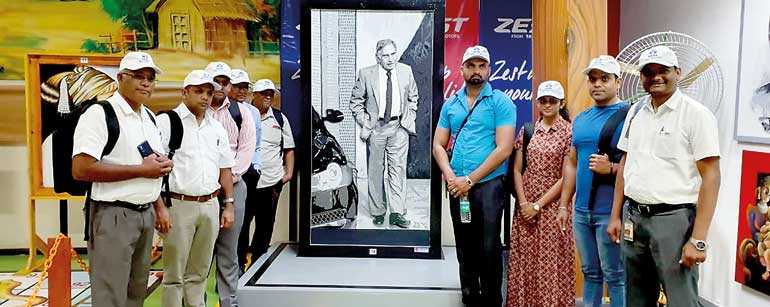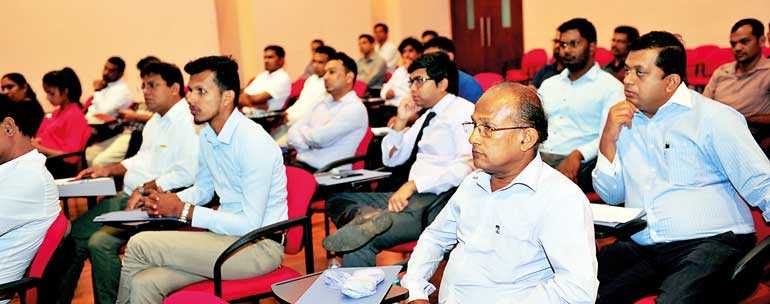Tuesday Feb 17, 2026
Tuesday Feb 17, 2026
Thursday, 13 February 2020 01:24 - - {{hitsCtrl.values.hits}}


The global trading environment is evolving rapidly with numerous developments in global production networks and global value chains. These developments are a result of product fragmentation; cross-border dispersion of components and production/assembly. Each country specialises in a particular stage of production sequence and trades the value added components which ultimately results in the final product.
Sri Lanka needs to switch to export-oriented industrialisation where the economies of scale could be reaped and more foreign exchange earned. Given the small market size of Sri Lanka, import- substitution industrialisation cannot reap the economies of scale in the domestic market and save foreign exchange to match the foreign exchange earnings of export-oriented industrialisation.
The automobile component manufacturing industry has been identified as one such sector to be developed and promoted in the international market by linking with the Global Value Chains (GVCs). At present, many companies in Sri Lanka are engaged in manufacturing automobile components but mainly produced for the local after sales market.
Sri Lanka produces polymer and metal base automobile components such as wire harness products, rubber carpets, beading, mud flaps, washers, bushes, gaskets, leaf spring, centre bolts, bronze bushes, coil spring, bearings etc.
The EDB has implemented a number of product and market development programs for this sector. The product development program implemented in 2018 by obtaining the services of a qualified technical expert from a Senior Expert Service in Germany was one such program. During the program, the expert highlighted that there is a vital need to upgrade the knowledge and exposure of the component manufacturers on the areas of quality, standards and required certification to enhance the capabilities of the automobile component manufacturing companies to connect to the global value chain. Keeping in line with the above requirement, the EDB, with the assistance of Sri Lanka Consulate General in Mumbai, India, organised a tailor-made Technical Training and Exposure program on Advanced Material and Characterisation and Testing and Certification at Automotive Research Association of India (ARAI) from 14 to 19 October, with the objective of providing first-hand knowledge and exposure on industry requirements, international standards, new technological improvements etc.
The ARAI is an autonomous body affiliated to the Ministry of Heavy Industries and Public Enterprises, Government of India.
Clinco Rubber Mouldings Ltd., M.V. Electronic Ltd., Bopitiya Auto Enterprises, De Saa Holdings, Lancor Rubber Industries, New Priyadarshani Brassware, Saniklo Metals and Udaya Industries Ltd. participated in the program.

The training program was conducted for five days by the ARAI and included lectures, visits to testing laboratories, and factories manufacturing automobile/automobile components. Delegates had the opportunity to visit well established manufacturing facilities such as TATA Motors, Skoda Auto Volkswagen India Ltd. and Mahindra & Mahindra Ltd., Pune.
The participants were able to establish contacts with the ARAI’s testing facilities to develop their product samples and the EDB is planning to assist participant companies to develop in-house testing facilities to standardise their products to enter into the global value chain.
The EDB organised a half-day knowledge sharing workshop on 28 January at the EDB auditorium to disseminate the knowledge gained from the Technical Training and Exposure program held in Pune, India to the industry at large.
Bopitiya Auto Enterprises CEO Manisha Rodrigo was the main presenter who shared her knowledge gain through Pune program. In addition Sri Lanka Institute of Information Technology (SLIIT) Faculty of Engineering Dept. of Mechanical Engineering Senior Lecturer Dr. Malika Perera made a presentation on new technology improvements of the automobile industry and on the testing facilities available for automobile components at SLIIT.
EDB Director General Jeevani Siriwardena made the opening remarks of the workshop. Sri Lanka Automobile Component Manufacturing Association (SLACMA) President Dimantha Jayawardhana also addressed the participants, highlighting the importance of automobile components manufactures attending this kind of programs to upgrade their knowledge and identify the opportunities in international markets.
40 participants from the automobile component manufacturing industry joined the program. The participants were able to gain knowledge on material selection for various applications, requirements and testing methods available for automobile/automobile components, and effectiveness and efficiency of automobile component manufacturing plants in India.
